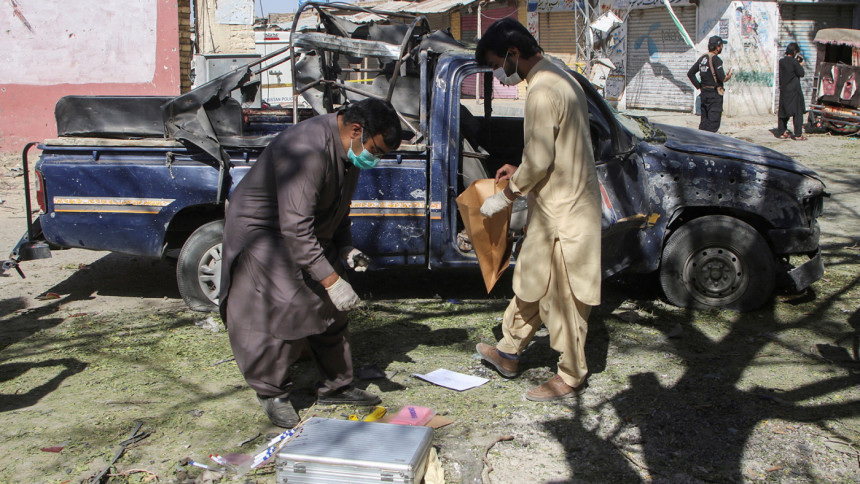Security Measures
Beijing is pressing Pakistan to allow its own security personnel to protect thousands of Chinese citizens working in the country, following a deadly car bombing in Karachi that exposed a serious security breach.
Sources involved in the discussions revealed that talks between the two nations intensified after the bombing, which killed two Chinese engineers who were returning to work on a project after a holiday in Thailand.
This incident is the latest in a series of attacks targeting Chinese nationals and interests in Pakistan, which have increasingly frustrated Beijing.
The attack, which occurred at a highly secured airport in the southern port city of Karachi, highlighted the inability of Pakistani authorities to fully prevent such threats.
The pickup truck loaded with nearly 100 kilograms of explosives managed to remain unnoticed for 40 minutes before it rammed into a vehicle carrying the Chinese engineers.
Officials investigating the attack believe that the assailants may have had insider help, as they appeared to have knowledge of the engineers’ itinerary and travel route.
Five Pakistani officials, who requested anonymity due to the sensitivity of the talks, confirmed that China has formally requested Pakistan to allow Chinese security personnel to provide protection for their citizens.
Although Pakistan has not yet agreed to this demand, there is a consensus between both nations on the need to establish a joint security management system.
However, while Pakistan appears open to allowing Chinese officials to participate in security meetings and coordination efforts, it has resisted the idea of Chinese security forces operating on Pakistani soil.
Instead of direct Chinese involvement, Pakistan has asked for assistance in improving its intelligence and surveillance capabilities to better handle security challenges.
Despite this, Beijing remains insistent on increasing its control over the safety of its citizens, especially after what it perceives as Pakistan’s failure to adhere to previously agreed security protocols.
Neither Beijing nor Islamabad have officially confirmed the details of the ongoing talks. A spokesperson for China’s foreign ministry declined to comment directly on the negotiations but emphasized that China will continue to strengthen cooperation with Pakistan to ensure the safety of Chinese personnel, projects, and institutions.
Chinese nationals working in Pakistan, particularly on projects related to the China-Pakistan Economic Corridor (CPEC), have become prime targets for separatist militants, particularly in the resource-rich but underdeveloped province of Balochistan.
These militants view China’s involvement in the region as exploitation of their land and resources. The CPEC, a $65 billion investment in China’s Belt and Road Initiative (BRI), has brought thousands of Chinese nationals to Pakistan to work on infrastructure projects, and their security has been a growing concern for both nations.
Currently, thousands of Pakistani security officers, including army personnel, police, and the Special Protection Unit, are assigned to guard Chinese workers.
However, China has been privately expressing its dissatisfaction with Pakistan’s security measures for some time.
During recent meetings, Chinese officials presented evidence that Pakistan had twice failed to follow the agreed-upon security protocols, which are intended to provide higher levels of protection for Chinese citizens and officials.
Publicly, China has shown support for Pakistan’s security efforts but continues to push for stronger measures. The latest bombing has only increased Beijing’s demands, as it seeks to ensure that its citizens working on critical infrastructure projects are adequately protected.
Although Pakistan has not fully acceded to the demand for direct Chinese security involvement, the discussions continue as both nations attempt to find a solution to the growing security challenges facing Chinese workers in Pakistan.
I am a dynamic professional, specializing in Peace and Conflict Studies, Conflict Management and Resolution, and International Relations. My expertise is particularly focused on South Asian Conflicts and the intricacies of the Indian Ocean and Asia Pacific Politics. With my skills as a Content Writer, I serve as a bridge between academia and the public, translating complex global issues into accessible narratives. My passion for fostering understanding and cooperation on the national and international stage drives me to make meaningful contributions to peace and global discourse.










